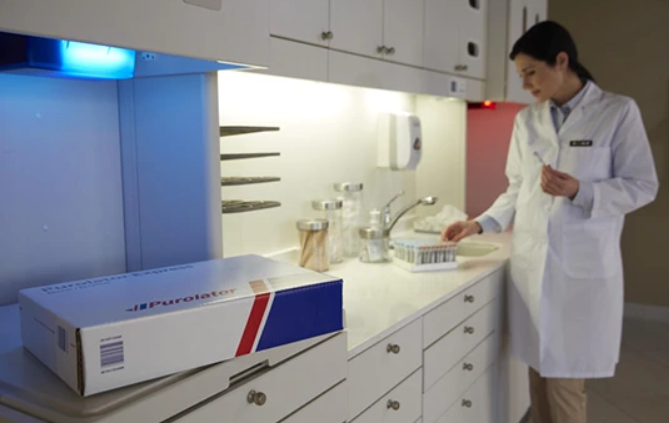
Cancer Moonshot and the Paediatric Consortium: Putting the Pieces Together
In 2015, Vice President Joe Biden declared, ‘I believe that we need a moon shot in this country to cure cancer,’ a historical nod to President John F. Kennedy’s famous 1962 declaration to put a man on the moon. In September, Biden reiterated his call for action to fast-track the nation’s most comprehensive cancer collaborative initiative aimed at accelerating genomics and immunotherapy as the next-generation standard of care for cancer patients. ‘There is a lack of coordination among efforts, a failure to share information both rapidly and effectively, and an antiquated culture of research and funding,’ he said.
At Phoenix Children’s in Phoenix, Ariz., we are working to change this dynamic and transform cancer care for children. In fact, we have made an institutional commitment to be at the forefront of eradicating paediatric cancer both at home and abroad. To that end, our organization developed a joint venture with renowned doctor and health care entrepreneur Patrick Soon-Shiong, who is a leader in the Moonshot mission. Earlier this year, he named Phoenix Children’s the lead institution for the Cancer Moonshot 2020 Paediatrics Consortium.
Phoenix Children’s joins nine world-class children’s hospitals from across the U.S. in a shared mission to advance bench-to-bedside translation of genomic technology to prevent, treat and manage paediatric diseases, first in cancer and then in other conditions. The founding members of this alliance are working to adopt the approach of the larger Moonshot 2020 effort by expanding knowledge sharing, increasing collaboration and driving synergy and effective integration among health care, medical, academic and scientific communities. Our partners include:
- Ann & Robert H. Lurie Children’s Hospital of Chicago / North-western, Ill.
- Children’s Healthcare of Atlanta, Ga.
- Children’s Hospital of Orange County, CA
- Aflac Cancer & Blood Disorders Centre, Children’s Hospital of Orange County, Calif., Children’s Hospital of Pittsburgh of UPMC, Pa.
- Duke Department of Paediatrics ‘ Duke University School of Medicine, N.C.
- Floating Hospital for Children at Tufts Medical Centre, Mass.
- Huntsman Cancer Institute at the University of Utah and Intermountain Primary Children’s Hospital, Utah
- Sanford Health, S.D.
Cancer’s chokehold on Americans’ health is overwhelming: according to the National Cancer Institute, nearly 40 percent of men and women will be diagnosed with cancer at some point during their lifetime. Statistics of paediatric cancer are especially grim. In 2016 alone, 10,380 U.S. children under the age of 15 will be diagnosed with the disease. Cure rates for some paediatric cancers remain below 50 percent, and survivors often experience serious or even life-threatening side effects from the toxic protocols used to treat cancer today.
But Cancer Moonshot offers new hope. Leaders in health care, research, education and business are joining an expanding coalition of difference-makers to fundamentally transform the way cancer is treated.
Moonshot’s ultimate goal is to transform cancer care as we know it by initiating randomized Phase II trials in 20 tumour types for 20,000 patients at all stages of disease within the next three years, ultimately developing an effective vaccine-based immunotherapy for cancer by 2020.
At the heart of the initiative is the role of precision medicine in fighting cancer.Utilizing genomic analysis, which unlocks a patient’s genetic and proteomic makeup, researchers can customize therapies by analysing patients’ susceptibility to disease and predicting their response to a particular drug. As data is collected and disseminated to researchers, we hope to uncover pharmaceutical combinations that increase efficacy in treating cancer ‘ and with fewer side effects for patients.
Evolution
Central to the work of the Paediatric Consortium is the Chan Soon-Shiong Children’s Precision Medicine Institute at Phoenix Children’s Hospital, a joint venture that launched in 2014.
The Institute offers whole genome sequencing, RNA sequencing and proteomics. It also offers an advanced technological infrastructure that will move the work of the Consortium forward. Our High-Performance Computing Platform allows the Institute to offer high-throughput, complex genomic analysis to researchers across the country; a direct high-speed ‘fibre’ connection enables rapid transfer of genomic data; and a comprehensive cancer population management platform was created not only to collect and analyse clinical data, but to actively assist in the comprehensive clinical management of patients’ lives.
Our first step for the Consortium was to enable real-time information sharing of patient outcomes, clinical trial data, genomic and proteomic sequencing analyses and treatment efficacy. This knowledge dissemination is critical to the design of Moonshot and promotes synergy among participants.
The next step in the blueprint is certification. Last year, the Phoenix Children’s Biospecimen Sciences Program was accredited by the College of American Pathology, making our biorepository one of only three children’s hospitals nationwide with CAP-accreditation. Now, we are working toward certification from the Clinical Laboratory Improvement Amendments. Once this certification is in place, Phoenix Children’s will be the only U.S. children’s hospital with both CAP accreditation and CLIA certification. These accomplishments will position the Consortium with the finest research capabilities and capacity in the country.
In the future, we envision that personalized medicine will not be reserved for a select few; genomic screening will be available to all children under the care of a Phoenix Children’s provider. Our vision will be reality very soon; physicians will help identify children who are more highly prone to paediatric diseases. Oncologists, cardiologists, neurologists, genetic counsellors and other experts will weave this data into the standard of care they provide.
Much has been accomplished, yet so much work remains for the Consortium. Cancer Moonshot is a bold endeavour and the year 2020 is fast approaching, but we remain undaunted as we strive for the seemingly impossible — to break down conventions in pursuit of a world that is cancer-free. I am reminded of what President Kennedy said about the 1960s Moonshot. ‘We choose to go to the moon. We choose to go to the moon in this decade, and do the other things, not because they are easy, but because they are hard, because that goal will serve to organize and measure the best of our energies and skills, because that challenge is one that we are willing to accept, one we are unwilling to postpone, and one which we intend to win.’
Robert L. Meyer is President and CEO of Phoenix Ch


















